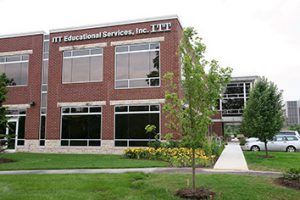Taxpayers could lose billions as U.S. students escape loans
The unwinding of for-profit education companies could allow tens of thousands of students to walk away from their federal loan obligations.
The unwinding of for-profit education companies could allow tens of thousands of students to walk away from their federal loan obligations.
The Hamilton Southeastern School Board on Tuesday morning postponed a vote that could have put a referendum over a property-tax hike on the November general election ballot.
School districts across Indiana are having trouble finding people to fill open teaching positions as the number of teacher licenses issued by the state has dropped by nearly 90 percent in recent years.
Attorney General Greg Zoeller's complaint alleges The College Network made personal loans for customers at high interest rates with payments beginning immediately, but that relatively few people actually complete its program and earn a college degree.
Shares of ITT Educational Services Inc. shot up by as much as 60 percent Friday morning after the company reported that its first-quarter profit had nearly tripled from a year ago.
Tuition increases at IUPUI and IU's five regional campuses will increase by an average of 1.65 percent.

ITT Educational CEO Kevin Modany and Chief Financial Officer Daniel Fitzpatrick allegedly “engineered a campaign of deception and half-truths” to hide from investors the extent of losses ITT was suffering from student loan programs, the SEC said Tuesday morning.
Wayne Township, Perry Township and Beech Grove schools all passed referendums, but voters in Brownsburg rejected two proposals.
The Mind Trust, an Indianapolis-based education reform group, will use the money from the family of Wal-Mart Stores founder Sam Walton to provide more innovation school fellowships and launch more charter schools.
Wayne Township, Perry Township and Beech Grove school officials say they need tax increases to provide relief from property tax caps the Legislature passed in 2010.
Indiana Senate budget leaders are proposing that changes to local school funding be phased in so that cuts faced by some urban and rural districts with shrinking enrollments will be easier to manage.

Leaders from some of Indiana's poorest school districts said Tuesday they fear proposed funding cuts they're facing, while those from growing districts are worried proposed increases for them won't be enough.
Students using loans to pay for college might get some extra help when it comes to gathering information about their debt load if an Indiana House bill becomes law.
Two bills already have passed the Senate that push the state in the direction of a national test.
The planned school spending increase is more than double the $201 million hike that Republican Gov. Mike Pence proposed in January.
Indiana lawmakers could face a prickly debate as they aim to tighten up funding differences between the state's school districts during the General Assembly session that starts Tuesday.
Superintendent of Public Instruction Glenda Ritz is seeking $20 million more for testing as part of her spending proposal, which calls for an overall 3 percent increase and free textbooks for all Indiana students.
That per-student figure was the 16th highest among the 50 states, according to The Project on Student Debt report put out by The Institute for College Access & Success.
When adjusted for inflation, students are paying more than triple what students paid 30 years ago to attend a public, four-year institution.
City-County Council Democrats and Republicans have agreed on alternative sources to fund a preschool program proposed by Mayor Greg Ballard, which also would include $20 million from private sources.